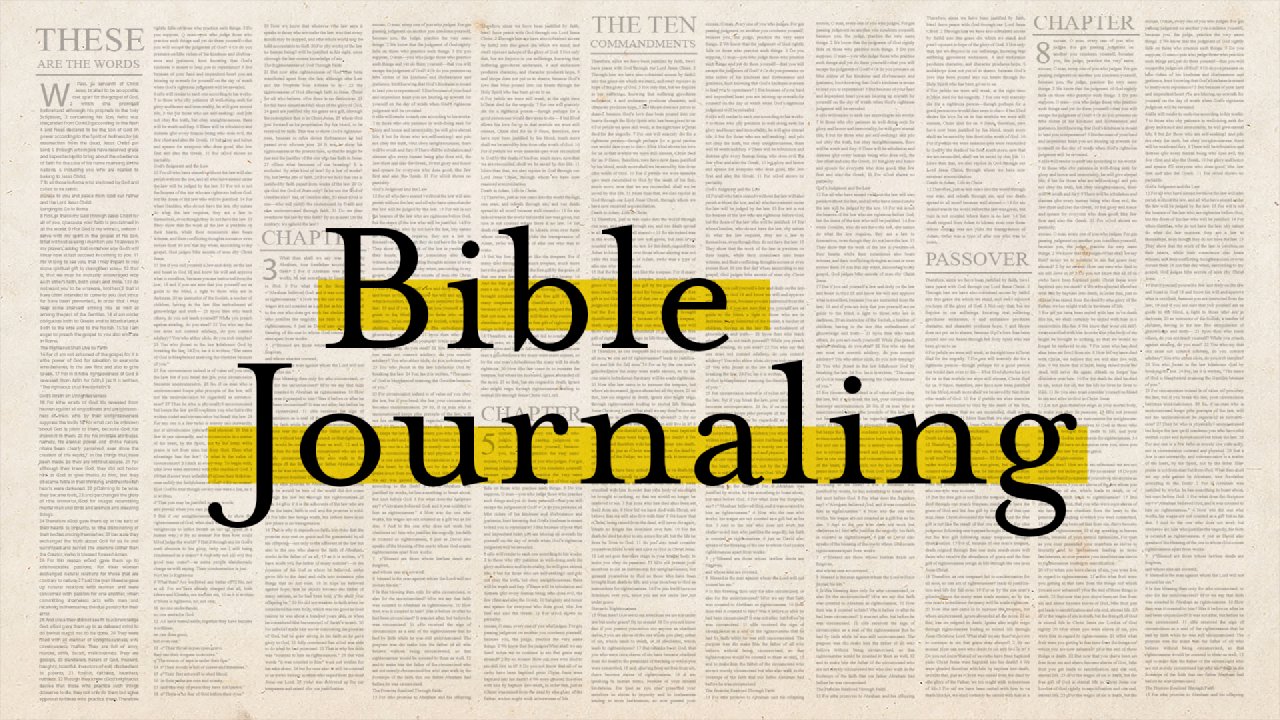How Shall We Then Live? Part 3
(In re: to new world problems[1]):
1. Our choices of abstinence or indulgence with regard to new world problems must:
1.1. not stop us from welcoming - or cause us to despise - those who choices are different (1-3, 21 “wine”) = Who is Paul referring to as the weaker brother (the one not eating meat or drinking wine)? There are two possibilities: 1) Jews living in Rome who were not were willing to obtain meat or wine previously offered to pagan idols or not prepared according to kosher laws (e.g., Exo 23:19; Lev 7:26-27; Pro 12:10). The problem was that the pagan temples and markets were the primary source of meat and wine in the city of Rome[2]. For these newly converted Jews, a diet of vegetables and water became (in their mind) their only acceptable option. And/Or 2) Gentile converts whose former association with meat or wine offered to pagan idols was still too fresh in their minds to partake without violating their conscience (See 1Co 8:7). Similar concerns were present in the Roman church with respect to days of fasting (5-6) “One person esteems one day as better…another esteems all days alike”= Some Jewish Christians were still convinced that daily fasting was the honorable practice -excluding Sabbaths or Sacred holidays (the “better” day). Others saw fasting as no longer required of specific days, but rather something done only on special occasions (e.g., special pleading before God – Jug 20:25-28 [victory in battle]; 1Sa 7:3-6 [repentance/forgiveness]; 2Sa 12:15-16 [mercy to the sick]; Ezra 8:21-23 [safety from danger])[3]. Included in our eternal assessment will be how we treated those who differed with respect to these kinds of new world problems (10-12 the “judgment seat of God” = The final judgment determining where we send eternity). Knowing this, should cause us to steer clear of ever being negative of someone for their choices/decisions in the area of new world problems when those choices/decisions are based on biblical conviction and God-honoring intentions.
1.2. be based on biblical conviction and God-honoring intention (5) “fully convinced [convicted] in his own mind [thinking supported by Scripture]” = IOW: He must possess biblical conviction. Hence why Paul says what he does at the end of the chapter (23) “But whoever doubts [possesses no biblical grounds for his indulgence] is condemned [in sin] if he eats because the eating is not from faith [the Christian Faith]. For whatever does not proceed from faith [the Christian Faith] is sin” = If our practice cannot be supported from the pages of Scripture (the book defining the Christian Faith) then we are acting in rebellion to God (regardless of what we think or how we view our actions). Biblical conviction therefore represents the first prerequisite for determining our choices (abstinence or indulgence) with respect to new world problems. The second is our intention (6-9) = Making choices based on what pleases self or others is no longer an option. Such decisions must now be made based on what we believe is honoring to God – including in the areas fasting or eating and drinking (See also 1Co 10:31). The reason behind this prescription? The Christian’s life now belongs to Christ (v8 “we are the Lord’s”). He has become our new “master” (v4), the One Who gained such authority/ownership by His death and resurrection (again v9; See Mat 28:18; 1Co 15:27; 2Co 5:17; Consider also 1Co 6:19-20). There are two questions (then) that should be utilized in making our choice with respect to new world problems: 1) Do I believe I can support my abstinence or indulgence from Scripture? 2) Is my intention to honor/please God in abstaining or indulging? Examples of new problems relevant to us where these questions need to be applied: drinking alcohol outside of sacred times, fasting during the week, movies, tv shows, video games involving witchcraft.
1.3. not become an area of proselytization in respect to those holding a different position (yet doing so with the right conviction and intention) (1 “welcome him, but not to quarrel over opinions” w/4) = God supports his current (biblically based) conviction. Conversion to a different position is not necessary.
1.4. never cause another Christian to stumble (13-15) IOW: though what you choose to indulge in may be okay (not sin before God), if others in the Body of Christ view it as sin (to them it is still “unclean”) and see you doing it, they could become “grieved” (i.e., disenchanted in living the Christian life) – or worse, encouraged to do what for them would be sin since they do not possess the biblical conviction or God-honoring intentions to support such indulgence with respect to themselves (“it is unclean to anyone who thinks it is unclean”; See again v23b). Becoming a “stumbling block or hindrance” in this way puts us in danger of being guilty of several serious sins: 1) We are guilty of not “walking in love” toward our covenant brothers/sisters (15; Failing to walk in love toward our cov bros/sis is a sign that we are not a child of God – 1Jo 3:10), 2) We cause a covenant bro/sis to apostasize (15 “destroy” [ἀπόλλυμι]) = Every time this Greek word is used in the NT, it refers to something that is – or in danger of being - completely and permanently lost (Mat 12:14; Jam 4:12; Jud 1:5). Given the context in which Paul uses this word (“destroy the one for whom Christ died”), the thing in jeopardy is the person’s salvation. Our indulgence becomes for the weak Christian (those lacking the proper biblical understanding or conviction), the vice leading to their destruction (e.g., alcohol leading them back to their former alcoholism – i.e., unrepentant drunkenness/addiction), or the violation of conscience leading them to look for answers outside the Christian Faith (e.g., Christians are hypocrites because they preach against witchcraft, yet indulge in movies, tv and games which include it. Christianity therefore must not be true[4]). Both Paul and Jesus strongly warn against becoming a stumbling block of this magnitude (one leading to the apostasy of others) (1Co 3:16-17, 8:8-10 w/10:27-29; Mat 18:5-10).
1.5. also (therefore) be decided based on our ability to practice it while still preserving the conscience and spiritual prosperity of others in the church (16-22) = A sign of poor thinking – and very likely also, a selfish heart, is to believe that the only criteria for determining what I (as a Christian) can practice is whether or not that thing is considered lawful before God. Lawfulness is merely the first criteria; the second is whether it is helpful or harmful to me or those God has placed in my sphere of influence. As such, our primary goal should never be to seek and protect all those lawful indulgences that God has provided to the Christian, but rather seek to protect those in the Body of Christ who might be unnecessarily harmed by our practice. It is this kind of Christian that is “acceptable to God and approved by men (1Co 10:23-24, 31-33).” Our mindset therefore toward those indulgences which are justified – though questionable, should be, “If I cannot practice it safely (v22), without others accusing me of “evil” (v16) or causing another to “stumble” (v20), then I will (happily) forgo its practice (v21; 1Co 8:13).” The additional question (then) we must consider when making our choice: Can I practice it without being accused or guilty of association with evil by others? (Association w/evil = Sin/Damnation; 1Co 10:14-22; 2Co 6:14-7:1; Hence Rom 14:21 and 1Co 8:13).
(Important Takeaways Not To Miss):
2. Diversity of practice with respect to new world problems (where there exists biblical conviction, God-honoring intentions and no cause for stumbling among others) should be supported in the church (1, 13, 19).
3. God honors those who abstain because they do not possess the biblical conviction and God-honoring intention to indulge (2-4 w/14) “I know and am persuaded in the Lord Jesus” = I possess Biblically based conviction. “but it is unclean for anyone who thinks it is unclean” = They do not possess the biblical conviction to indulge.
4. God condemns those who indulge without possessing the biblical conviction and God-honoring intention to do so (23 “if he eats” = Indulgence – not abstinence, is the issue).
[1] Practices, places or things that may be permissible under the New Covenant that did not exist in the past or were not permitted under the Old Covenant.
[2] The kosher slaughtering of animals (OC requirement) has had a long history of being illegal in many parts of the secular world - e.g., “The Driving Force Behind The Ban On
Kosher Slaughtering” by Melanie Phillips (JNS.org); “The Prohibition of Ritual
Slaughtering and Freedom of Religion of Minorities by Pablo Lerner (Cambridge
University Press); “The Day Kosher Slaughter Was Saved” by Baruch Sterman
[3] See “On Esteeming One Day Better Than Another” by R. Dederen (Andrews University Seminary Studies vol. 9, pp. 16-35)
[4] In 2007, the Barna Group did an extensive research project in which they asked non-Christian people why they rejected Christianity. 85 percent said it was due to the hypocrisy they had witnessed among their ranks.






